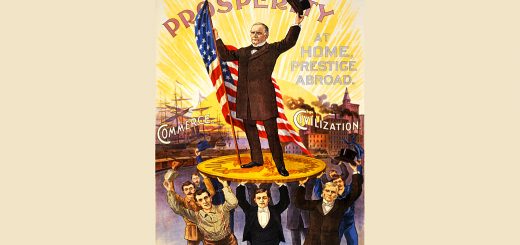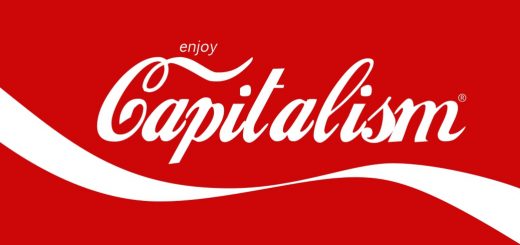23 Things About Capitalism – Conclusions

Today is our last post about Ha-Joon Chang’s book – 23 Things They Don’t Tell you about Capitalism.
- We’ll look back at what we’ve learned over the previous eight articles.
- And we’ll also hear another reviewer’s perspective on the book.
Contents
- 23 Things About Capitalism
- Things we (mostly) agreed about
- Things we (mostly) disagreed about
- Markets should be free
- Because people are irrational, markets can’t be free
- Because markets are complex, they must be regulated
- Companies should work in their shareholders’ interests
- Governments can’t pick winners
- What’s good for the corporate sector is good for the country
- Equal opportunity is enough
- Big government is a bad thing
- Financial markets need to be efficient
- Things we can safely ignore (from a UK economics perspective)
- Another perspective
23 Things About Capitalism
Ha-Joon Chang is an economics professor at Cambridge.
- Although I studied at Cambridge they decided against making me a professor. (( My subject wasn’t economics, either ))
23 Things covers the basic economic concepts, without leaning too much on maths.
- Many of the chapters have a developmental bias, and we won’t focus on these in this summary article.
The book was also written back in 2010, in the aftermath of the 2008 financial crisis.
- The theory that “Gordon Brown saved the world” was still believable at the time.
Two ex-colleagues gave me the book as my final ever leaving present from work. (( I retired after that job ))
- They were lefties who thought I could do with an education.
Biases
Ha-Joon is Korean and has a bias towards developmental economics.
- I’m focused on the UK economy and those of other developed countries that we trade with.
But as I’ve said before, it’s a good idea to listen to ideas from across the political spectrum.
- Modern media tends to create an echo chamber.
Free markets
I’m a free markets person by nature – though they create problems that we need to fix.
- Ha-Joon hates free markets and appears to be to the left of Jeremy Corbyn.
I like free markets because they are:
- Efficient, because individuals know best how to use the resources they command, and
- Fair, because competition means that individuals prosper according to their productivity.
For me, the two problems with free markets are:
- Monopolies and oligopolies, where the natural price-setting function of free markets doesn’t work
- Externalities – the tragedy of the commons – where we need to force somebody to pick up the bill.
- pollution and climate change fall into this category
Government intervention to fix these two problems is fine.
- In other circumstances, governments have worse information and incentives than private actors.
- They will make things worse.
Inequality
Ha-Joon is also angry about inequality, which he blames on free markets.
- We need to be clear here – global inequality is falling, not rising.
- People in emerging markets like China, Korea and India are getting richer.
Inequality within developed economies is rising.
- But poverty in these countries is relative rather than absolute.
Things we (mostly) agreed about
International wages don’t reflect productivity
- Workers in rich countries earn “too much”, even after allowing for higher living costs.
- The high productivity of the elite drives up living costs, and hence wages at the bottom.
- The extra money comes from the infrastructure and institutions of the nation.
- Which each citizen owns a share in as their birthright.
- Within a country, it is possible for wages to reflect productivity.
- Ha-Joon would like unlimited immigration to flatten global living costs.
- Suppressing wages to send remittances to the mother countries of immigrants is a bad idea.
- We can’t all be rich, though we could all be poor.
Capital has a nationality
- Multi-national companies are national companies with international operations.
- High-end work (R&D, strategy) gets done at home.
- The key decision makers are usually home-country nationals.
- Home country jobs and factories are the last to go in bad times.
- Profits flow back to the home country (though locals can buy shares and profit that way).
- Every successful country will need it’s own multinationals to operate abroad.
We don’t live in a post-industrial age (in economic terms)
- Many of us feel that we live in a post-industrial age because we have service industry jobs.
- This is not true in economic terms.
- The shrinkage in manufacturing’s share of GDP is due to the falling prices of manufactured goods.
- It’s not because of a reduction in the quantity produced.
- Some things now provided as 3rd-party services (catering, cleaning etc.) were once part of manufacturing.
- De-industrialisation is bad for productivity and the balance of payments.
- Services are harder to export and harder to achieve productivity increases in.
- The potential impact of software automation and robots on service economies is unclear.
Making rich people richer doesn’t make the rest of us richer
- The rich can’t spend all their money (at least on themselves) and so that money is “wasted”.
- In contrast, poor people have to spend all their money to live.
- Today in the UK, personal wealth of perhaps £4M in total (£2M for a house, £2M for income) could be justified as simply wanting a nice life.
- We could do more with incentives for productive investment (VCTs and EIS).
- Or we could tax wealth above £4M, and / or not in government tax shelters (ISA, pension, VCT / EIS, primary residence).
Things we (mostly) disagreed about
Markets should be free
- This is pretty obvious – see the section on Free Markets above.
- All markets have restrictions – like a minimum wage, banning child labour or the sale of kidneys.
- But these restrictions reduce the efficiency of the economy – it’s a trade-off.
- And if we have more restrictions than other countries, we lose out.
- This is a moral or political discussion, not an economic one.
- I agree with Ha-Joon that repressive interest rates since 2008 have caused problems.
- I disagree that free marketeers must be in favour of unlimited immigration.
- My constituency is UK workers only.
Because people are irrational, markets can’t be free
- In another chapter, Ha-Joon argues against free markets because people behave irrationally.
- Irrational behaviour will be punished by free markets, and those actors will either correct their behaviour or be wiped out.
Because markets are complex, they must be regulated
- Ha-Joon cites the 2008 financial crisis as an example of financial markets and products being too complex for people to understand.
- He suggests that the human reaction to complexity is to restrict freedom of choice.
- This is true in the personal sphere (habits, routines and heuristics), but that’s not the same as government intervention.
- The lessons from 2008 are: (i) don’t lend to people who can’t pay you back, and (ii) don’t buy things that you don’t understand.
- In the same way that people play reasonable chess via a few rules of thumb, it is possible to safely navigate the financial markets via a few golden rules.
- Don’t risk money that you can’t afford to lose, and don’t buy anything that you don’t understand.
- Shareholders are the owners of the company.
- They are the only people who need the firm to make a profit before they can benefit.
- All other stakeholders are secondary.
- That said, treating secondary stakeholders well will likely improve the company’s prospects.
- Long-term thinking is better than short-term thinking.
- Sometimes companies have no good investment prospects and must shrink.
- This means returning capital to their owners.
- Limited liability is essential for capitalism.
Governments can’t pick winners
- The government doesn’t have special information so that it can outperform the market in spotting the best companies.
- The key risk in developed countries is that government will prop up declining industries (eg. steel) for sentimental and political (vote-winning) reasons.
- In a choice between those motivated by political power and ego, and those motivated by money, I will always back money.
- Few would object to government support for university- or military-led R&D.
- This can later be exploited commercially.
What’s good for the corporate sector is good for the country
- The corporate sector exploits new technologies to make them available to the masses
- It also creates the jobs, unless you want to live under socialism, not to mention wealth and tax revenue.
- Healthy competition is what drives things forward.
- Ha-Joon wants companies to train their workers.
- But if trained workers are more productive they should earn more.
- So it should be worth their while to fund their own training.
- Or, the state might provide free / subsidised training where we know there is / will be a skills shortage.
Equal opportunity is enough
- Equality of opportunity is enough, and anything “better” would be impossible to achieve.
- Equality of opportunity should mean increased efficiency.
- Firms that hire the best regardless of birth circumstance should prosper.
- Equality of outcome is impossible to achieve.
- Under communism, in the army, even in prison, some people live better lives than others.
- Whatever the system, some people will figure out how to work it.
- We have a moral obligation not to discriminate against people for the circumstances of their birth.
- We do not have an obligation to compensate them for those circumstances.
- Nor for anything that happened before their birth.
Big government is a bad thing
- A welfare state funded by high taxes on the rich removes the incentives for the poor to work at all.
- And for the talented to work hard and become wealthy.
- The rich won’t invest to create wealth and jobs because they won’t see the benefits.
- Bizarrely, Ha-Joon thinks that the safety blanket of the welfare state encourages people to take chances and to be open to change.
- More worker protection against changes in the industrial mix would be good.
- But this does not imply big government in general.
Financial markets need to be efficient
- Ha-Joon wants to pin the 2008 crisis on”instability”.
- He thinks the instability arises from new instruments designed to increase efficiency.
- As stated above, the 2008 crisis was down to lending money to people who couldn’t pay it back.
- This has been a recipe for disaster down through the millennia.
- Dodgy maths that implied that blended bad debts could become good made things worse.
- Ha-Joon also makes the case for “patient capital”, to be used for the long-term development of firms.
- This is a good idea – the markets as a whole are too short-term.
- But the way to do it is to incentivise long-term / early-stage investment (VCTs etc).
- It’s not to cripple liquidity and short-term trading.
- If you can’t get out of something quickly, why would you get in in the first place (unless there is an incentive)?
- Ha-Joon would like to introduce a Tobin tax (a transaction tax) to slow down the markets.
- We already have one in the UK – a 0.5% stamp duty on share purchases.
- People get around it by buying ETFs and AIM stocks, and by using spread betting instead.
- I’m against all transaction taxes.
- The lock-up at the top end of the property market – in the face of six-figure stamp duty payments – is a good example of what will happen.
Things we can safely ignore (from a UK economics perspective)
Some of the things below I agree with, some I do not.
But if you are planning to read the book and you are time-poor, these are the chapters you can skip:
- The internet may or may not be revolutionary
- You can assume the best about people
- Macroeconomic stability is not world economic stability
- Free-market policies don’t make poor countries rich
- The US doesn’t have the highest standard of living in the world.
- Africa is not destined for under-development.
- US managers are over-priced.
- People in poor countries aren’t entrepreneurial.
- Education won’t make a country richer.
- Planned economies don’t work.
- Good economists are not required to run good economic policies.
Another perspective
I wasn’t the only one to notice that Ha-Joon often misrepresents his opponents’ views, and devotes his energies to knocking down strawmen.
I am grateful to Mark Pennington, a professor at King’s College, London for the following insights:
- Ha-Joon’s idea that markets require rules does not mean that there are no free markets, any more than the fact that we use MPs rather than daily electronic referendums means that we don’t live in a democracy.
- Free marketeers are not anarchists.
- Ha-Joon pretends that the liberal (or as he would say, neo-liberal) position is that free trade is the engine of development.
- In fact, liberals see free trade as an extension of the infrastructure (property rights, private industry, competition) at home.
- Ha-Joon describes Europe and the US in the 19th century as Keynesian interventionists and nowadays as laissez faire
- Yet in the 19th century government spending was 5% to 10% of GDP, and there was no welfare state.
- Today government spending is north of 40% of GDP.
- In developing countries, Ha-Joon advocates protectionism and regulation
- In reality, the biggest obstacles to the poor are the lack of property rights and regulations which confine people to black market (“informal sector”) activities.
- On planning and rationality, Ha-Joon misses the idea that what is important is not whether there is planning, but how much and by whom.
- Market competition can help to determine what level of planning, hierarchy, size of firm and centralisation works best.
That’s it from 23 Things – I promise that there will be no more posts about this book.
We will definitely look at another economics book in 2017, though.
- And I can’t guarantee that it won’t be another of Ha-Joon’s.
Until next time.

















hi Mike, i fell into this page and found it very interesting though i expect to rearead the previous posts and this one after that.
there is one point which i would like to comment. on inequality.
what that means exactly to each one of us is probably very different. a son sometimes senses inequality (with or without real motives) when it comes to its brothers ( i.e., Joseph sell out ). and there are natural differences ( age, culture, talent, deficiencies,etc) that generate asymmetries almost naturally. and there are personal/circumstantial initiatives, like personal effort and even luck, that generate asymmetries. and there are asymmetries generated by third parties with power to do that, parents, governments/armies, companies, etc
that said, which are the ones that are the concern when we claim for egalite ?
i don’t see people protest when an artist or football player makes millions for his work ? some people admire them more because of this fact. so where is here the inequality factor ?
what i see as a justification for equality is opportunity when third parties act against what we see are our interest, and not of the result itself.
very easy to be against inequality and eventual lack of free will and liberty. but we need to understand about what we are really claiming.